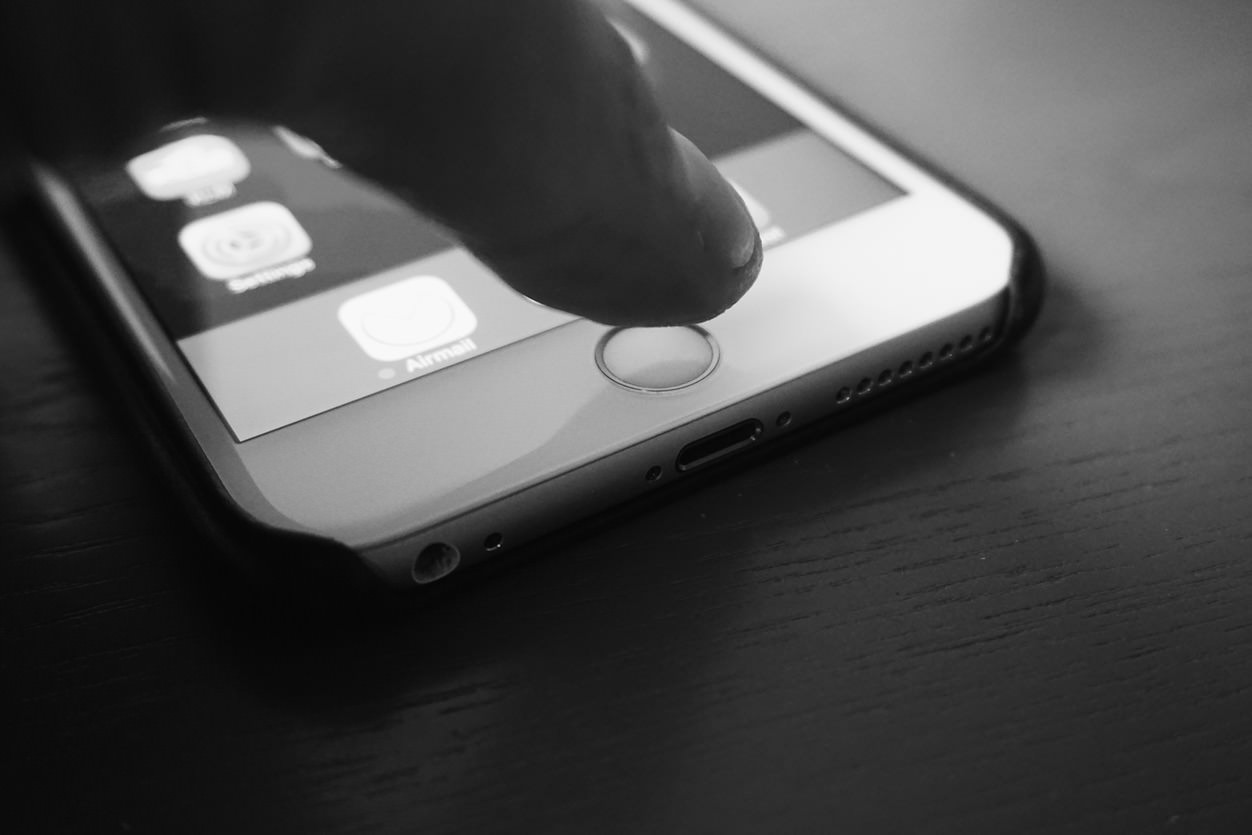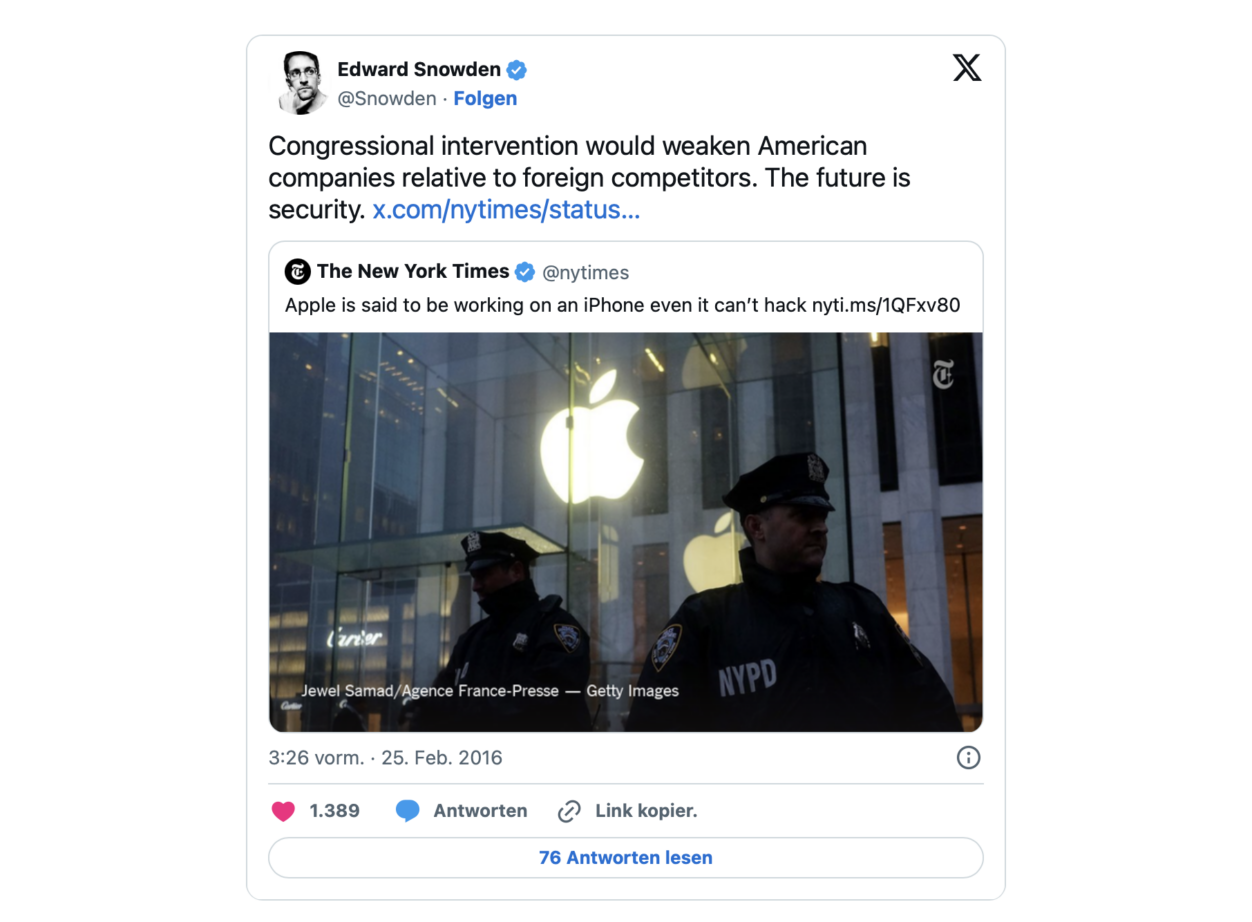Aktuelle Anweisung: mehr iPhone-, iOS- und iCloud-Verschlüsselung

Apple engineers have begun developing new security measures that would make it impossible for the government to break into a locked iPhone using methods similar to those now at the center of a court fight in California, according to people close to the company and security experts.
If Apple succeeds in upgrading its security — and experts say it almost surely will — the company will create a significant technical challenge for law enforcement agencies, even if the Obama administration wins its fight over access to data stored on an iPhone used by one of the killers in last year’s San Bernardino, Calif., rampage.
„Apple Is Said to Be Trying to Make It Harder to Hack iPhones“
Seit Jahren verbessert Apple die iPhone-Sicherheitsfunktionen und verschlüsselt Kundendaten. Die Informationen der New York Times sowie der Financial Times („Apple to boost customers’ iCloud encryption“) sind daher nur bedingt neu.
Tatsächlich neu: Die nächsten iOS-Versionen stehen unter besonderer Beobachtung. Welchen offenen Baustellen widmet sich Tim Cooks Mannschaft für das nächste iPhone und das nächste iPhone-OS? Im Vergleich zu den Vorjahren wartet auch eine bedeutend größere Anzahl interessierter Personen auf das kommende ‚iOS Security Guide‘-Update. Letzter Stand: September 2015.
Wie der Artikel von Matt Apuzzo und Katie Benner richtig festhält: „A security solution that defeats the F.B.I. is unworkable if it frustrates consumers.“
Passwort vergessen = iCloud-Fotobibliothek weg? Betriebssystem-Updates nur noch nach Eingabe des Gerätecodes? Wie weit treibt man den Kundenaufwand für das Thema Sicherheit?
Fest steht: Apple hat die Motivation, die Ressourcen und den Willen den San-Bernardino-Fall bis zum obersten US-Gericht durchzufechten. Programmcode als ‚Free Speech‘ ist als Argument nicht auszuschließen. Außerdem müssen Hilfegesuche der US-Regierung an private Firma in einem zumutbaren Rahmen bleiben. Durch stärkere Verschlüsselung und angehobene Sicherheitsmaßnahmen ist genau das neu zu bedenken.
Bis dafür aber moderne Gesetze durchgearbeitet sind, die (vielleicht sehr eingeschränkt) entsprechende Fragen beantworten, entscheidet erst einmal der technische Status-quo, den Apple für sich und zugunsten seiner Kunden derzeit verbessert.

”This case is not about one phone,“ Cook said today. „This case is about the future.“
„Exclusive: Apple CEO Tim Cook Says iPhone-Cracking Software ‘Equivalent of Cancer’“
Über diese „Zukunft“ schrieb die New York Times gestern noch einen zweiten (meiner Meinung nach wichtigeren) Artikel.
But if Apple is forced to break its own security to get inside a phone that it had promised users was inviolable, the supposed safety of the always-watching future starts to fall apart. If every device can monitor you, and if they can all be tapped by law enforcement officials under court order, can anyone ever have a truly private conversation? Are we building a world in which there’s no longer any room for keeping secrets?
Farhad Manjoo | „The Apple Case Will Grope Its Way Into Your Future“